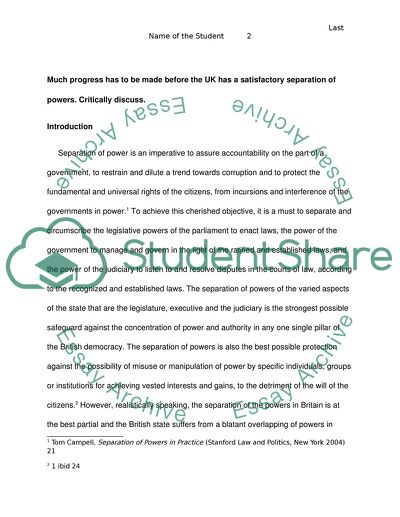Cite this document
(Separation of Powers in the UK Dissertation Example | Topics and Well Written Essays - 2500 words, n.d.)
Separation of Powers in the UK Dissertation Example | Topics and Well Written Essays - 2500 words. Retrieved from https://studentshare.org/politics/1749242-much-progress-has-to-be-made-before-the-uk-has-a-satisfactory-separation-of-powers-critically-discuss
Separation of Powers in the UK Dissertation Example | Topics and Well Written Essays - 2500 words. Retrieved from https://studentshare.org/politics/1749242-much-progress-has-to-be-made-before-the-uk-has-a-satisfactory-separation-of-powers-critically-discuss
(Separation of Powers in the UK Dissertation Example | Topics and Well Written Essays - 2500 Words)
Separation of Powers in the UK Dissertation Example | Topics and Well Written Essays - 2500 Words. https://studentshare.org/politics/1749242-much-progress-has-to-be-made-before-the-uk-has-a-satisfactory-separation-of-powers-critically-discuss.
Separation of Powers in the UK Dissertation Example | Topics and Well Written Essays - 2500 Words. https://studentshare.org/politics/1749242-much-progress-has-to-be-made-before-the-uk-has-a-satisfactory-separation-of-powers-critically-discuss.
“Separation of Powers in the UK Dissertation Example | Topics and Well Written Essays - 2500 Words”, n.d. https://studentshare.org/politics/1749242-much-progress-has-to-be-made-before-the-uk-has-a-satisfactory-separation-of-powers-critically-discuss.


